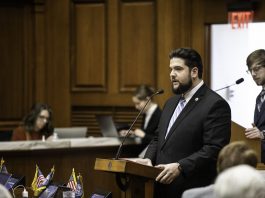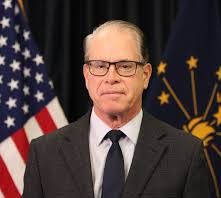by Joe Wallace CCO Columnist January 21, 2025
The Perils of Pure Democracy: A Path to Authoritarianism
Pure democracy, often celebrated as the pinnacle of collective decision-making, harbors significant risks when left unchecked. While it promises the rule of the majority, history and political philosophy warn us of its potential to devolve into authoritarian forms of governance, such as fascism, or other systems that undermine individual liberties and minority rights. The United States, wisely established as a constitutional Republic, was designed to prevent the excesses of pure democracy and safeguard fundamental freedoms.
Majority Rule and Its Tyrannical Potential
At its core, pure democracy operates on the principle of majority rule. In theory, this sounds equitable, as the majority’s will prevails. However, this model has an inherent flaw: the potential for “the tyranny of the majority,” a term popularized by Alexis de Tocqueville in his seminal work Democracy in America. Tocqueville observed that without safeguards, a majority could exploit its power to trample on the rights of minorities and individuals, effectively subverting the democratic ideals of equality and justice.
Consider how a majority might vote to confiscate wealth or property from a minority group. This phenomenon, where democracy becomes a tool for redistribution based on numerical superiority rather than principles of fairness, undermines societal cohesion and individual rights. Tocqueville’s warning remains pertinent: “A democracy can only exist until the voters discover that they can vote themselves largesse from the public treasury.” Such behavior erodes the moral foundation of governance, replacing civic responsibility with opportunistic self-interest.
The Slippery Slope to Authoritarianism
The unbridled application of majority rule can lead to dangerous outcomes. When a democracy fails to protect minority voices or uphold the rule of law, it risks descending into mob rule, where decisions are driven by popular sentiment rather than reason or justice. This chaotic environment often sets the stage for the rise of authoritarian leaders who promise to restore order and stability. Fascist regimes in the 20th century, such as those led by Mussolini and Hitler, exploited democratic mechanisms to consolidate power before dismantling democratic institutions altogether.
Authoritarian governance thrives on the centralization of power, which can emerge from a disillusioned electorate seeking decisive leadership after experiencing the chaos of unrestrained majority rule. The transition from democracy to authoritarianism is often subtle, beginning with the erosion of checks and balances and culminating in the suppression of dissenting voices.
The Republic as a Safeguard
The framers of the United States Constitution were acutely aware of these dangers. They chose to establish a Republic rather than a pure democracy, embedding safeguards to protect individual rights and minority interests. Central to this design are the principles of federalism, the separation of powers, and the rule of law.
In a Republic, representatives are elected to govern on behalf of the people, balancing majority interests with the protection of minority rights. The Constitution’s Bill of Rights further ensures that certain freedoms—such as speech, religion, and due process—cannot be overridden by majority rule. The judiciary acts as a critical check, interpreting and upholding these rights even against popular sentiment.
Lessons for Modern Governance
The United States’ commitment to republican principles has been tested throughout its history, from debates over civil rights to economic policy. Each challenge underscores the necessity of maintaining the delicate balance between majority rule and minority protection. Pure democracy, with its potential for excesses, reminds us of the importance of institutional safeguards.
In contemporary discourse, it is vital to resist calls for governance that prioritize transient majority preferences over enduring principles of justice and equality. Policymakers and citizens alike must uphold the Republic’s foundational ideals, ensuring that the pursuit of democratic governance does not come at the expense of individual freedoms and minority rights.
Conclusion
While democracy remains a cornerstone of modern governance, its pure form carries inherent risks that can lead to authoritarianism. The founders of the United States recognized these dangers and crafted a Republic designed to temper the excesses of majority rule. By adhering to constitutional principles and safeguarding minority rights, we can honor their vision and protect the enduring values of liberty and justice for all.




